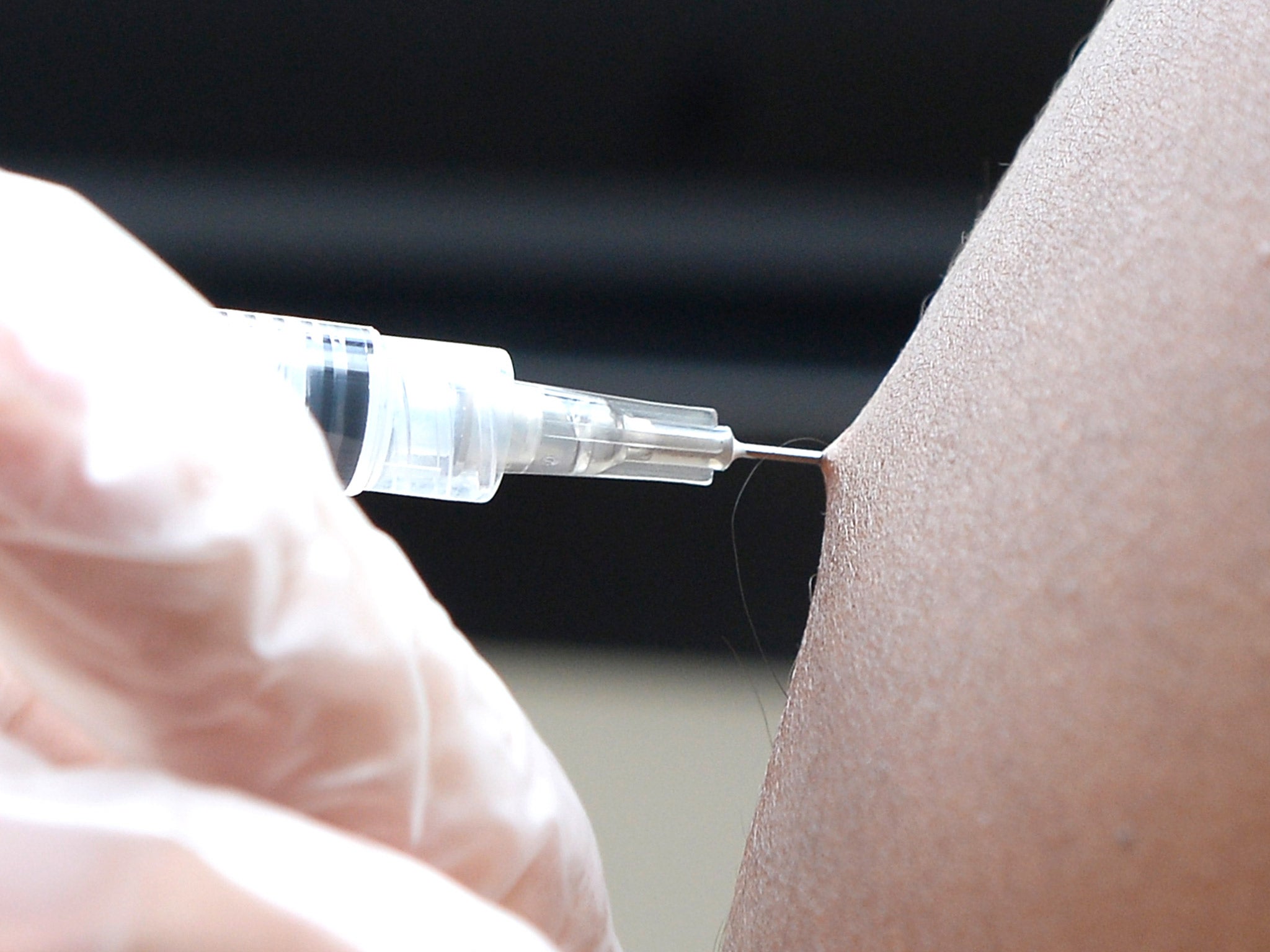Health Secretary Jeremy Hunt under pressure to introduce new meningitis B vaccine on NHS

Your support helps us to tell the story
From reproductive rights to climate change to Big Tech, The Independent is on the ground when the story is developing. Whether it's investigating the financials of Elon Musk's pro-Trump PAC or producing our latest documentary, 'The A Word', which shines a light on the American women fighting for reproductive rights, we know how important it is to parse out the facts from the messaging.
At such a critical moment in US history, we need reporters on the ground. Your donation allows us to keep sending journalists to speak to both sides of the story.
The Independent is trusted by Americans across the entire political spectrum. And unlike many other quality news outlets, we choose not to lock Americans out of our reporting and analysis with paywalls. We believe quality journalism should be available to everyone, paid for by those who can afford it.
Your support makes all the difference.Health Secretary Jeremy Hunt is under increasing pressure from leading medical researchers and clinicians to back the UK-wide introduction of a newly licensed life-saving vaccine for children.
A re-evaluation next week by the Department of Health advisory body, the Joint Committee on Vaccination and Immunisation (JCVI), will examine its decision taken last year not to recommend the Bexsero vaccine.
The vaccine, approved by the European Medicines Agency last year, is estimated to cover 88 percent of meningitis B disease, thus preventing deaths and devastating limb amputations in young children.
The JCVI rejected the vaccine’s use in an NHS immunisation programme because it failed a cost-benefit efficiency test.
Last month over 100 medical scientists and clinician researchers wrote to the health secretary telling him it was “vital the JCVI’s interim conclusions are re-evaluated”.
The letter, describing meningitis and meningococcal disease as “a parent’s greatest fear” because of the speed and severity of the way it attacks, claimed many of the factors inputted into the JCVI’s calculation had underestimated the realities of the disease both for children and their families.
Mr Hunt was urged to ensure that any re-evaluation was concluded “as swiftly as possible” and that should a positive recommendation now take place, the DoH would make the vaccine available as swiftly as possible.
Ahead of next week’s two-day JCVI meeting, a further 95 health professionals from some of Britain’s leading hospitals and research institutions have added their support to the appeal.
Among the criteria that will be re-examined, which could alter the JCVI’s 2013 rejection, is a “discounted” value for the quality and quantity of life of children who survive MenB.
The complex calculation last year used a 3.5 percent discount rate. This figure is usually associated with adult medicine. However other public health evaluations have used a lower 1.5 per cent figure for children. This could significantly alter the final outcome of the re-examination.
Other factors to be recalibrated include inputs on the proportion of survivors left with after-effects from the disease; the burden of survival rates to government departments beyond the NHS; and the legal costs to the NHS in meningitis-related litigation, which currently runs to millions of pounds each year.
Although Mr Hunt has so far taken a neutral stance on the vaccine, and legally has to follow the JCVI’s recommendation, a recent letter to the Lancet from Dr Matthew Snape of the Vaccine Group at Oxford University warned of political as well as medical consequences. He wrote: “There seems little doubt that the public will react strongly to the continuing deaths and disabilities from meningococcus B that will occur in the absence of immunisation.“
Although Bexsero is not available on the NHS, the vaccine produced by the Swiss multinational Novartis has already seen significant sales in the private sector in the UK. Private clinics have been distributing the vaccine to worried parents at almost double the cost of rates recommended to NHS GPs, meaning bills of almost £600 for children aged six months to two years.
The private sector take-up of the vaccine has been dominated by concerned parents in the south-east, the wealthiest region of the UK. However with the incidence of MenB higher in socially deprived and poorer regions of the UK, accusations of austerity-inequality and of running a cost-obsessed NHS have already been levelled against the government.
The JCVI are expected to publish their decision on the vaccine in March.
Join our commenting forum
Join thought-provoking conversations, follow other Independent readers and see their replies
Comments